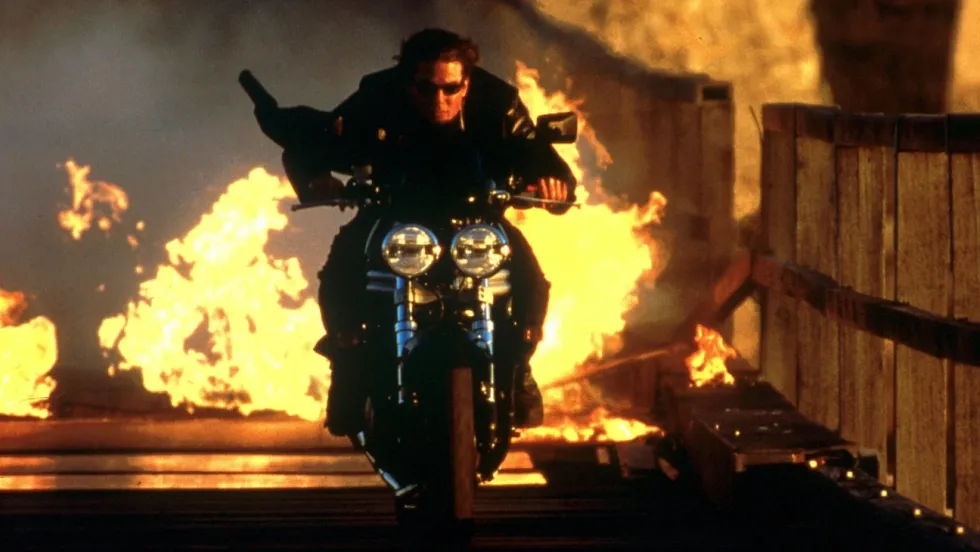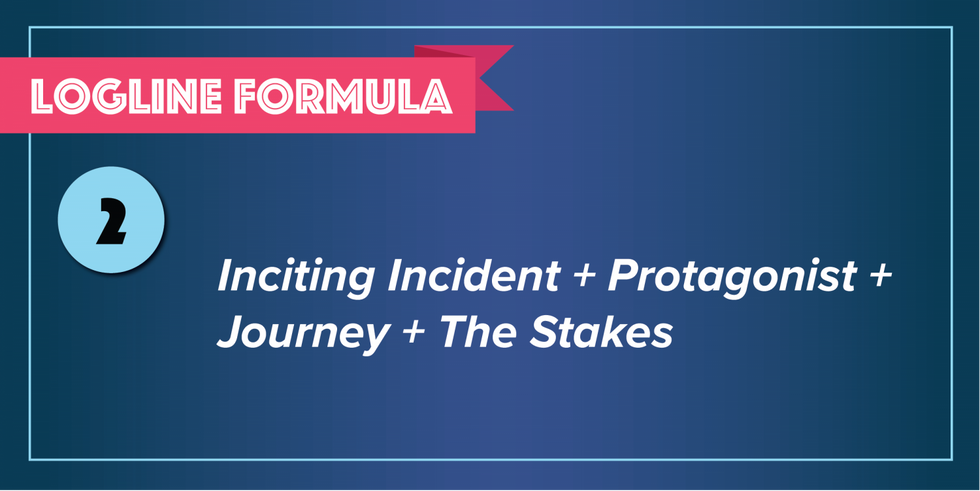
I love writing screenplays. And I hope, if you're reading this, you love writing too. Writing helps me put my complex character emotions onto the page and lets me talk about the things I care about while telling a story. But sometimes my stories are so complex, that it's nearly impossible to get a pitch together, let alone distill it all down into one sentence.
There's probably a lot of guesswork within your creation of that logline as well.
But a one-sentence summary of your screenplay is very important; and so are loglines. But what's a logline? And how can you write a noisy one? Today we're going to go over logline formation, who uses loglines and even look at some logline examples to flesh out our own ideas.
Let's get writing.
Script Tip: How to Write a Loglinewww.youtube.com
Logline definition
A logline is a one-sentence summary of the story put forward in your movie screenplay or television pilot.
Yup, that's all that it is. But a whole bunch of work goes into creating a logline. So let's go over some logline formulas to help you get your idea out on paper.
What makes a logline "noisy?"
 'Mission: Impossible II'Paramount Pictures
'Mission: Impossible II'Paramount PicturesToday most screenplays and ideas are sold because of their noisy logline. They stand out from the crowd, in buyers' minds, and get the most attention on annual lists.
A noisy logline is one that jumps off the page and makes you want to immediately read the screenplay that follows. It should scream "GOOD IDEA!" and be easy to understand and leave room for the person that hears it imagines all the possibilities within a story.
Are loglines and taglines the same thing?
No. No, they are not. A tagline is the words on the poster or advertisement Hollywood uses to sell the movie to the public. A marketing team will come up with the tagline. So the pressure is off of you there.
Here are some famous taglines:
“In space, no one can hear you scream.” --- Aliens
“One ring to rule them all.” --- The Lord of the Rings: The Fellowship of the Ring
“There are 3.7 trillion fish in the ocean. They’re looking for one.” --- Finding Nemo
But we are here to study loglines!
What are some common logline mistakes?
Many novice writers try to make their loglines way too much of a summary. They go long, and in the end, they submit a paragraph or a run-on sentence that is exhausting to read. Another thing novice writers tend to do is forget to match the tone of their logline to the tone of the movie. You shouldn't make a joke for a drama, or dramatize something that's supposed to come across as a comedy.
Lastly, it's quite common to get a logline that tells us nothing at all. Sometimes people are trying to be too brief. It's a "boy meets girl" story tells us nothing about what makes what you've written unique. Again, this needs to show us who you are as a writer, this needs to be enticing, so try to get it out and make it exciting!
What's a good logline formula?

Your logline needs to set up the character, conflict, world, and stakes. It's the first sentence that gets them to read the next 100 pages.
A lot of people are going to try to sell you a logline generator or a logline formula, but that's all bullshit. If you want somewhere to start, use the tried and true "in a world" formula.
In a world where _____, _____ has to _____, otherwise _____ will happen.
So for something like my movie, Shovel Buddies, "In a world where their best friend died, a group of friends bands together to honor his last wish and put him in his football jersey, otherwise, their friend will be cremated without his last wish being fulfilled."
Was that the actual logline we used? No. All writing is rewriting! But I think the "In a world..." technique is a great way to get started.
Crafting your the logline for your movie

When it comes to writing the logline for your movie, try the above formula. nciting Incident + Protagonist + Journey + The Stakes
Let's go back to Shovel Buddies to refine it further.
"After they open a Snapchat from their dead friend, a group of friends has a crazy night out on the town trying to fulfill his dying wish before he's cremated and they worry their friendship will disappear along with him."
See how that doubles down and refines on the initial idea? One of the most important things here is that we continue to refine what the movie is about and continue to write in a way that attracts other people to see a little bit of themselves in it. You want people to be incredibly excited to crack the script.
Here's a tough break: there's no way to just plug in words and come out with a logline. We've played with story idea generators on here. Every tool or fix someone offers needs to be a jumping off point that helps you tackle the outcome through your own voice. Each has to adjust to the movie at hand. So let's go over some professional logline examples to see how we can refine loglines for our own projects.
Logline examples
 'Spider-Man 2'CREDIT: Sony Pictures
'Spider-Man 2'CREDIT: Sony PicturesI scoured the internet and found this great resource called Film Daily which had this whole article of logline examples. I added a few below so you could see how writers refine and reform their loglines.
- The Godfather: "The aging patriarch of an organized crime dynasty transfers control of his clandestine empire to his reluctant son."
- Pulp Fiction:"The lives of two mob hit men, a boxer, a gangster's wife, and a pair of diner bandits intertwine in four tales of violence and redemption."
- Forest Gump: "Forrest Gump, while not intelligent, has accidentally been present at many historic moments, but his true love, Jenny, eludes him."
- The Matrix: "A computer hacker learns from mysterious rebels about the true nature of his reality and his role in the war against its controllers."
- Silence of the Lambs: "A young F.B.I. cadet must confide in an incarcerated and manipulative killer to receive his help on catching another serial killer who skins his victims."
- Inside Man: "A cop has to talk down a bank robber after the criminal’s perfect heist spirals into a hostage situation."
- Spider-Man: After being bitten by a genetically-modified spider, a shy teenager gains spider-like abilities that he uses to fight injustice as a masked superhero and face a vengeful enemy.
- Rear Window: "A wheelchair-bound photographer spies on his neighbors from his apartment window and becomes convinced one of them has committed murder."
- The Hangover: "A Las Vegas-set comedy centered around three groomsmen who lose their about-to-be-wed buddy during their drunken misadventures then must retrace their steps in order to find him."
- The Shawshank Redemption: "Two imprisoned men bond over a number of years, finding solace and eventual redemption through acts of common decency."
I hope these logline examples helped inspire your own work. See how they tell you the story, clue you in on the genre, and give you a sense of the stakes?
This is a variety of logline examples. It helps us see that you don't always need a protagonist name or an exact description of the plot, all you need to do is hook the audience.
That's why I hate logline formulas. Loglines adjust for the story at hand. And the writer is in charge of making those adjustments.
Who uses a logline?
If you have an agent or a manager, they'll use the logline as part of your submission of a script to producers, actors, and directors. You will use a logline to enter a contest, to put at the front of a film or tv treatment, and there are even logline services and contents!
You want to refine your logline because that's what people will use to pitch you and your project. When Shovel Buddies made the Black List and was passed around, everyone sold it as the "kids steal the body" script.
It was a weird one that had such a noisy concept and logline everyone wanted to read it. That's not me bragging, it's just something that's been told to me, and something I've tried to learn from with my other projects.
If your logline doesn't get you excited to write the project, then why write it at all?
You should use your logline to motivate yourself to keep writing. Or join our free screenwriting seminar and use it to get working!
What's next? Get your elevator pitch ready!
You may have a great idea but the real test is how you communicate it - even past the logline. Learning how to write an elevator pitch is a skill you can’t put a price on. Why? Because we’ve all been there when lightning strikes and that excellent idea comes to life in our minds.
Maybe it’s the greatest movie idea in the world. Maybe it’s an idea for a tv series or a piece of branded content. The only way you’re going to see it through is if you can convince other people of its value. And the really hard part?
You’ll likely only ever get a few minutes to do that. Enter the elevator pitch. The time-tested method of sharing the genius of a wonderful idea in a matter of minutes. In this post, we will break down this process plus provide you with a free elevator pitch template so you can start prepping the moment lightning next strikes.
Click the link and build your elevator pitch off of your logline.
- How to Write a Movie Script ›
- Are Loglines Worth Your Time? ›
- Learn How to Write a Logline for Your Screenplay Once & for All ›











